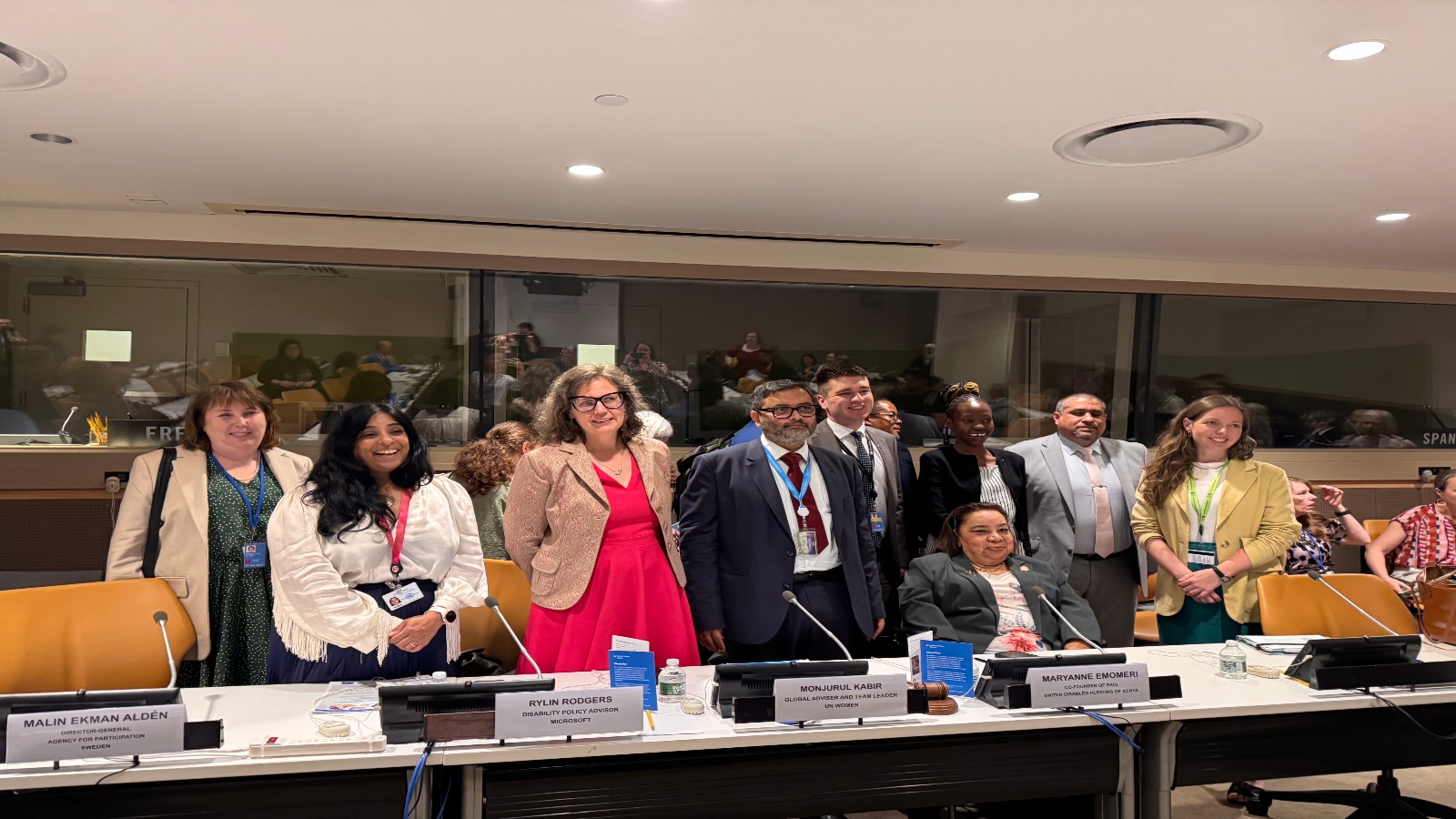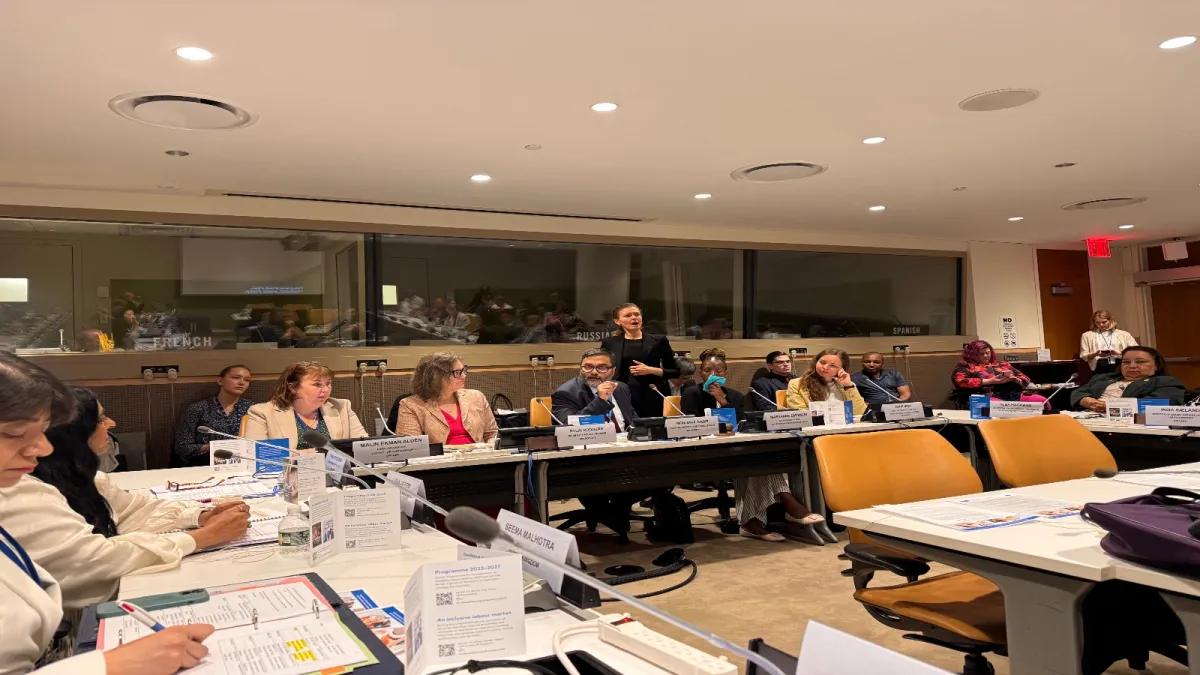
Held on Wednesday 11 June 2025 during COSP18, this event, co-organized by Finland with Nordic Council of Ministers, co-sponsored and moderated by UN Women, explored how AI can be harnessed to promote participation, accessibility, and human rights for persons with disabilities, in line with the UN CRPD. The event also previewed the Nordic-Baltic joint Declaration on AI and rights of persons with disabilities.
Framing the discussion around intersectionality, digital equity, and gender-responsive innovation, the event reflected on the systemic biases embedded in AI tools and highlighted the importance of co-leadership by all persons with disabilities, including women, in the design, testing, and governance of AI. Speakers from Finland, Norway, Sweden, the Special Rapporteur on the rights of persons with disabilities, Microsoft, United Disabled Persons of Kenya (UDPK), Disabled Peoples Organization (Denmark), and IDA touched upon the AI solutions to promote participation of persons with disabilities, and their messages to decision makers.
Key themes and challenges underscored by the speakers include:
- Bias and data gaps: AI systems often reflect existing inequalities, especially when trained on historical or incomplete data that excludes or misrepresents women and girls with disabilities.
- Lack of inclusive design: Tools are frequently not accessible across cognitive, cultural, linguistic, and gender dimensions, and lack of the use of plain language, visual support, and community-informed design processes to ensure full and effective participation.
- Insufficient regulation: Current legal and ethical frameworks lag behind AI development, with limited safeguards on privacy, safety, and accountability.
- Underrepresentation in leadership: Persons with disabilities, particularly women, are often excluded from AI design and governance processes and their lifecycles, leading to solutions that don’t reflect their lived realities.
- Global inequities: Access to inclusive AI remains out of reach in many low-resource settings, where infrastructure, affordability, and local language support are key barriers.
The outcomes and key recommendations from this event are:
- Support for the upcoming Nordic-Baltic Declaration on AI and Disability Rights, calling for inclusive innovation and AI governance aligned with CRPD.
- Reinforcement of the need for inclusive regulatory frameworks, with clear commitments to data transparency, privacy, and accessibility.
- Shared commitment to co-design with persons with disabilities, especially those often excluded from mainstream innovation, such as persons with intellectual disabilities and women with disabilities.
- Institutionalize and enable meaningful participation of persons with disabilities, accounting for plain, local languages.
- Recognition of AI as a tool to advance, not undermine, autonomy and informed decision-making, especially for users with cognitive or learning differences.
- Cross-sector agreement on the urgency of consumer-driven, ethical, and affordable AI solutions.
UN WebTv Recording: Watch here.

 Welcome to the United Nations
Welcome to the United Nations